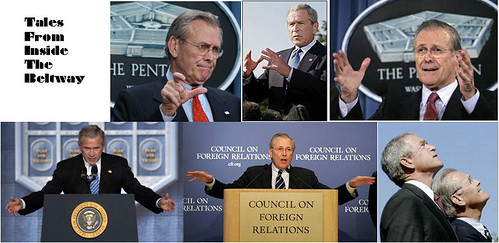The Iraqi economy was largely state-owned, the American attempt to privatize it was too sudden and too drastic. The economy collapsed, and the popular discontent fed into the insurgency.
Some excerpts:
...if you don't understand what these plans did to the daily economic lives of most Iraqis, as our regular news just about never does, there is simply no way fully to grasp ...
...the fundamental cause of the war-after-the-war – the American attempt to neo-liberalize Iraq...
...This process of dismantling included attempts, still ongoing , to remove various food, product, and fuel subsidies that guaranteed low-income Iraqis basic staples, even when they had no gainful employment....
...Because the privatizers of the Bush administration were, however, in control of a largely prostrate and conquered country, the Iraqi reforms were enacted more swiftly and in a far more draconian manner than anywhere else on the planet. Within six months, for example, the American occupation government, the Coalition Provisional Authority (CPA), had promulgated all manner of laws designed to privatize everything in Iraq except established oil reserves. (New oil discoveries, however, were to be privatized.)...
...At the same time, state-owned enterprises were to be demobilized and sidelined. They were to be prevented from participating either in repairing facilities damaged during the invasion (or degraded by the decade of sanctions that preceded it) or in any of the initially ambitious reconstruction projects the U.S. commissioned. This policy was so strict that even state-owned enterprises with specific expertise in Iraqi electrical, sanitation, and water purification systems – not to speak of Iraq's massive cement industry – were forbidden from obtaining subcontracts from the multinational corporations placed in charge of rejuvenating the country's infrastructure....
...millions of unemployed workers and soldiers, lacking the money to feed their families, also lacked the money to support local merchants.
These depressed neighborhoods became incubators for ferocious criminal gangs, who sought to redress their own economic hardship by looting public buildings and private dwellings of anything that might yield a return on the black (or export) market...
...They ignore the eternal verity that the willingness to fight and die is regularly animated by the conviction that otherwise things will only get worse.
































